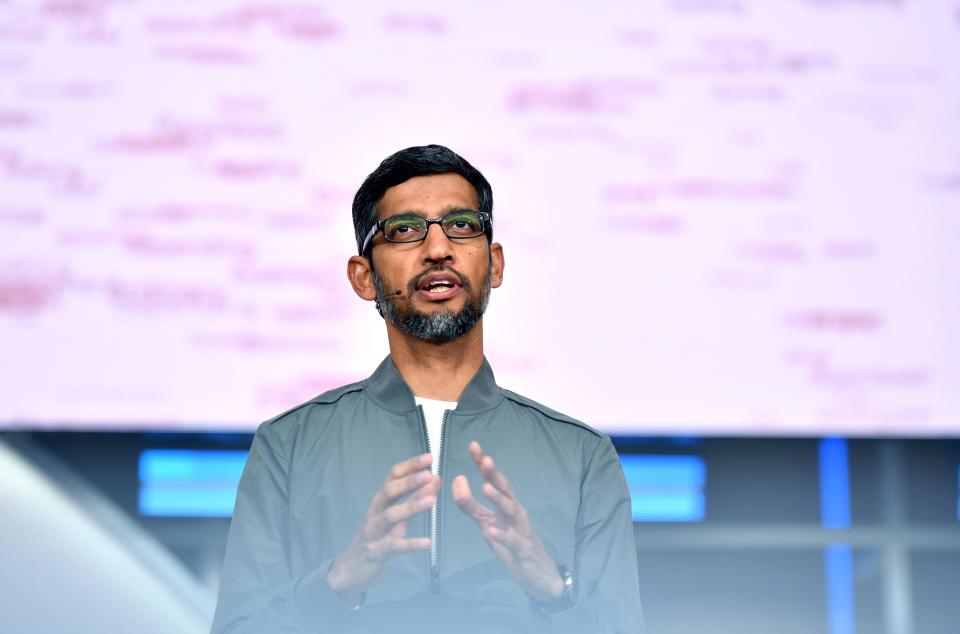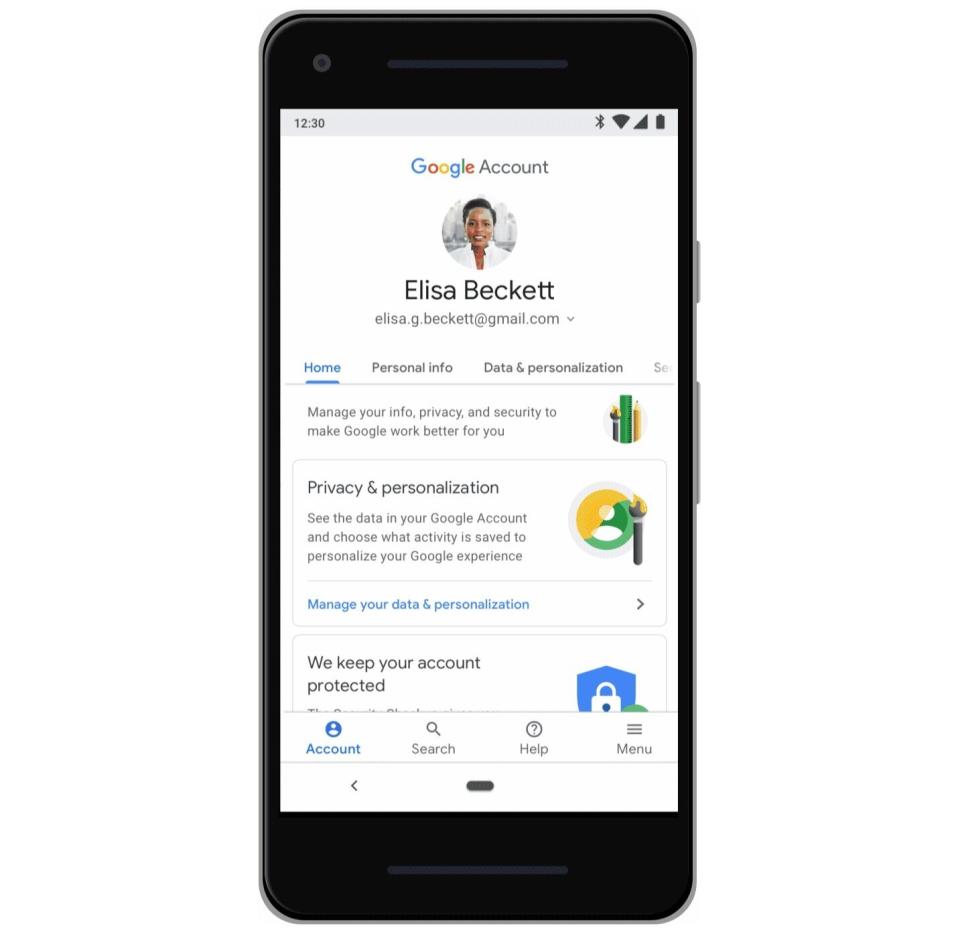Google is leaning into security just in time
Google this week is hosting its annual I/O developers conference in its hometown of Mountain View, California, where the tech giant is showing off new gadgets and software features. But in this post-Cambridge Analytica world, consumers and, increasingly, regulators want to know whether such new products could compromise consumers' private information.
It's against that backdrop that Google CEO Sundar Pichai took the stage at I/O to announce, among other things, a series of privacy and data protection features coming to Google (GOOG, GOOGL) products now and in the year ahead.

"We know our work on privacy and security is never done, and we want to do more to stay ahead of constantly evolving user expectations," Pichai said during his keynote.
From the looks of it, Google is delivering on its promise in a number of ways. But it's important to understand that this proactive approach will also benefit the company by building user loyalty and currying favor with politicians who are looking toward crafting privacy and security legislation.
Automatically delete your history
During his remarks, Pichai covered major security and privacy updates coming to some of Google's biggest products including Chrome, Search, and Maps. In recent weeks the company added a new auto-delete feature to Google's Web Activity, the console you use to see the kind of information Google collects while you're browsing the web.
The auto-delete function, which is available now, lets you limit how long Google can hold onto your data. If you don't want Google to have your data, you can manually delete it, or set it to be deleted after 3 months or 18 months from when it enters Google's system.
Google uses this data to create a general user profile of you that it can then use to sell ads to advertisers, so if you don't want to be a part of that, you can simply delete your web activity. But it's important to note that Google also uses this data to provide you with relevant recommendations through its services.
Pichai said this auto-delete feature will also be extended to location history data in the coming weeks.
Incognito mode in Google Maps
We've all used incognito mode in Google's Chrome browser to skirt paywalls and … other reasons. It's proven to be such a helpful tool that Google also expanded the feature to YouTube, so no one will know you secretly listen to old Milli Vanilli songs on repeat at the office.

On Tuesday, Pichai announced that incognito mode would also be coming to Google Maps. When enabled, none of the information you search for, or the locations you've visited, will be saved on Google's server. The data can still be viewed by, for example, your company's IT department, since they act as an intermediary that can see your data pass through your company's server.
It's a helpful move, especially if you're wary of a major conglomerate having all of your travel information on hand. On the flip side it will also benefit those who prefer stepping out on their significant others. Which, I guess is a good thing for them?
Android Q is putting privacy front and center
Google also unveiled a set of Android Q privacy features that will affect some of the 2.5 billion active Android devices currently in consumers' hands. The biggest step forward is that there will be a new dedicated Privacy tab in the Android Settings menu.
From here you can control your Web Activity data, Location information, and Ad Settings. This is a major change, as you previously had to access these menus via your online Google profile. This would enable you to do it from directly within your device's settings.
Android Q will also include new warnings about when apps are collecting your location data as they run in the background. That's something that both drains users' phone batteries, and surreptitiously tracks their location information.
You'll also be able to force apps to stop tracking your location one hour after using them, whenever you close the apps, or not let them track you at all.
Google's moves are certainly helpful, and making privacy settings more openly available to users is a big step forward for the company. But while Google won't be able to collect as much data about you if you use its new settings, that doesn't mean you'll never see online ads again.
The company will still sell ads — they just won't be as relevant to your interests. For some people that trade-off will be worth it. For others, it won't.
Google is also making these moves as privacy has become more of a hot-button issue in Silicon Valley following Facebook's myriad security and privacy problems, as well as Google's own Google Plus issues that ended with the social network folding.
During those incidents user data was left exposed due to a bug, which allowed third-party apps to see users' gender, age, name and email address. Google, however, said that no developers took advantage of the bug.
U.S. lawmakers are increasingly considering passing some form of privacy and data protection law, and more countries around the world are looking toward the European Union's General Data Protection Regulation (GDPR) as a model for such laws. For companies like Google, getting ahead of any U.S. regulations allows them to show that they've been working to improve user security, and potentially let them have a greater say in how such legislation comes together.
So while these improvements are helpful for users, they're just as helpful for Google.
More from Dan:
Google is bringing big changes to the next version of Android
Google’s Pixel 3 XL is half the price of an iPhone and nearly as good
Email Daniel Howley at [email protected]; follow him on Twitter at@DanielHowley. Follow Yahoo Finance on Facebook, Twitter, Instagram, andLinkedIn.www.cerveza-artesanal.com/
